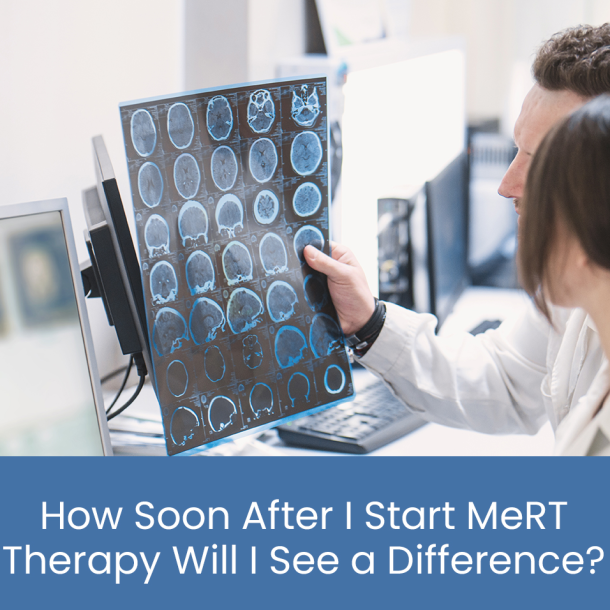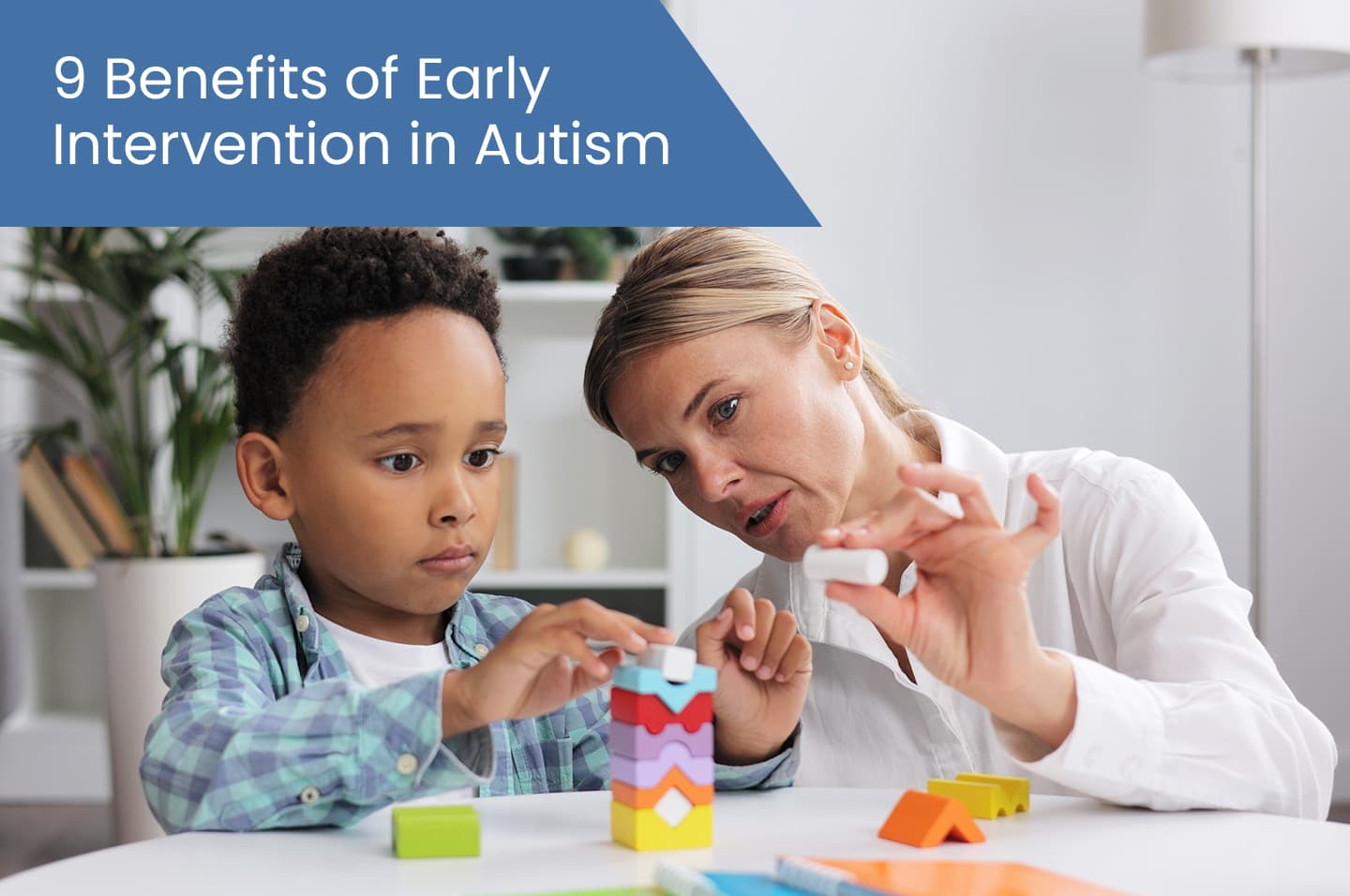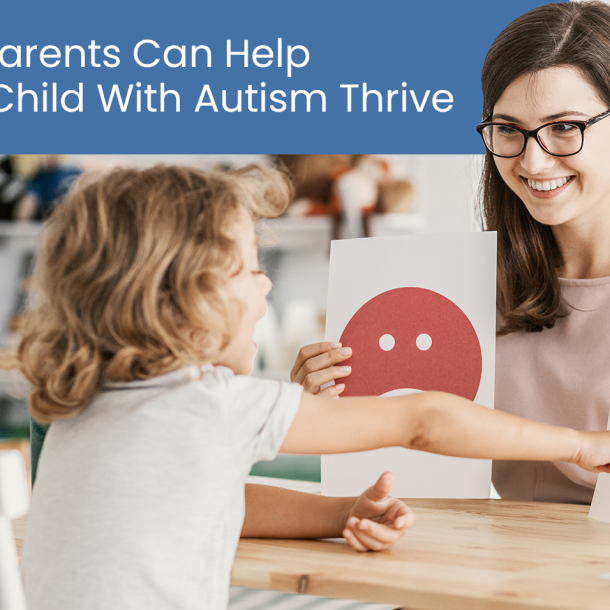
9 Benefits of Early Intervention in Autism
- Home /
- 9 Benefits of Early Intervention in Autism

Autism Spectrum Disorder (ASD) affects 2.8% (1 in 36) of children. Autism therapy in Vaughan can assist children in developing skills, receiving timely intervention, and managing behaviours and sensory experiences while providing a better quality of life.
Early intervention makes a marked difference in the individual’s life, and research indicates that assessing early intervention results in a more positive outcome.
When can professionals successfully diagnose ASD?
While experts can reliably diagnose ASD as early as age two, some children may begin to regress after age two, such as not making eye contact or responding to their name. If this occurs, parents should seek to obtain an evaluation for ASD immediately.
Early Autism Intervention
Early intervention means offering therapeutic services to children with ASD. It can begin as early as age two to three. The brain is rapidly developing during the child’s initial years, so early intervention is essential for how they function later in life and development.
When children receive early intervention, they show remarkable progress. Some may no longer appear on the autism spectrum as they age. They may go off the ASD spectrum if they have these common aspects:
- Diagnosis and treatment at an early age
- Higher IQ than the average ASD child
- Improved language and motor skills
Early intervention addresses social skills, communication and speech, fine and gross motor skills, independence, self-care and more.
The Benefits of Early Intervention
1. Intervention while the brain is still developing
Early intervention in autism is essential because of neuroplasty. Neuroplasty is the brain’s ability to form new connections. While we have this ability throughout our lives, there are sensitive time frames in our brain development when the most capable and remarkable capacity exists to alter the brain’s design based on exposed experiences.
Experiences can alter brain development and function. Children with autism have underlying challenges affecting the information they receive from their environment. Experts feel that if they can modify this, autism effects can be minimized.
2. Improvements in social skills
Communication and social interaction can cause autistic children to become isolated and experience challenges in making friends. Early intervention assists children in developing social skills by initiating opportunities to interact in supportive and structured environments.
It may include teaching the children how to start conversations, form friendships, and understand social cues.
3. Helps with communication skills
Children with autism can struggle with communication (speaking, using non-verbal cues, and processing language). Early intervention can assist children in expressing themselves and better understanding other people, leading to an improved quality of life and socialization.
4. Assists in learning appropriate behaviours
Autistic behaviours can be challenging to navigate. While your child may experience tantrums, aggression, self-injury, and meltdowns, early intervention can assist with difficult moments, help your child learn appropriate behaviour, and strengthen social interaction and learning methods. It teaches your child more adaptive ways of responding.
5. Leads to higher independence
Early intervention promotes the development of independent abilities like self-help (eating, dressing) and adaptive skills (decision-making and problem-solving). Children develop high self-sufficiency and independence, aiding them in effectively functioning daily.
6. Establishes academic success
Children with ASD may struggle academically, leading to low self-esteem and frustration. Early intervention can prepare families and children for future success by assisting young learners in developing communication and social skills that benefit them in the class once they are enrolled.
7. Inclusion opportunities
By including children with ASD in a classroom setting, the stigma attached to autism is reduced. Students also learn how to interact effectively with peers. Early intervention creates opportunities for educational inclusion in addition to community activities. By participating at younger ages, children develop better independence and social skills while having a sense of belonging in the broader community setting.
8. Improves family dynamics
Autism Spectrum Disorder is equally difficult for the family. Early intervention supports family members by offering tools and resources to help everyone better guide and understand their child. It reduces stress and improves family dynamics.
9. A better long-term prognosis
Overall, research indicates that individuals who received over 20 hours of therapy in their early childhood ranked closer in age-equivalence score than those who did not receive as much or no treatment. It also suggests that children who receive speech therapy until age five improve quicker over the following seven years than those who didn’t receive treatment.
Using MeRT for Addressing ASD
Magnetic e-Resonance Therapy (MeRT) provides a groundbreaking advancement in improving ASD. We use customized equipment to stimulate and rebalance brain activity by using a gentle magnetic field. Imaging techniques and advanced diagnostics guide our process.
By incorporating MeRT therapy, several children have received remarkable breakthroughs that have allowed them to engage fully in the world around them. Our professionals observe improvements in essential areas like communication, eye contact, understanding instructions, and regulating emotions. MeRT therapy has provided a greater sense of calmness and reduced behavioural outbursts.
How does MeRT work for ASD?
MeRT accurately pinpoints brain regions containing reduced activity levels through EEG and qEEG diagnostics. Magnetic fields stimulate these areas to activate underutilized pathways in the brain. It helps patients effectively process stimuli from their environment. MeRT is a non-invasive treatment relying on magnetic waves to promote brain connectivity and function.
MeRT works well with additional therapies, including educational interventions and Applied Behaviour Analysis (ABA). Brain pathways show better improvements across all treatments.
The Benefits of Treatment
MeRT treatments produce the following results in children with ASD:
- Better language skills
- Increased presence in their environment
- Ability to adapt to change
- Improved self-esteem and confidence
- Emotional stability, improved mood, decreased anxiety, and able to cope better with stress
- More socialization
- Motivation to learn
- Better attention span
- Sleep longer
- Better eye contact
- Independence
- Enhanced response to directions
- Improvements in focus and concentration
Contact Neurosync Brain Treatment Centre for Autism Therapy in Vaughan
The importance of early intervention cannot be stressed enough regarding ASD. Early intervention poses the best possible outcome for your child while their brain is still forming. However, if your child received a later diagnosis, there is hope for a good result by working with an expert autism therapist.
MeRT autism therapy has shown remarkable progress in children, with revolutionary results. Through customized autism treatment, we can remap the brain and impact behaviour.
For more information on autism therapy in Vaughan, book your free appointment by contacting us at 416-473-9676, emailing us at neurosyncbtc@outlook.com, or completing our online form.
Working Hours
Email: neurosyncbtc@outlook.com
Woodbridge. ON. L4L 1A6

